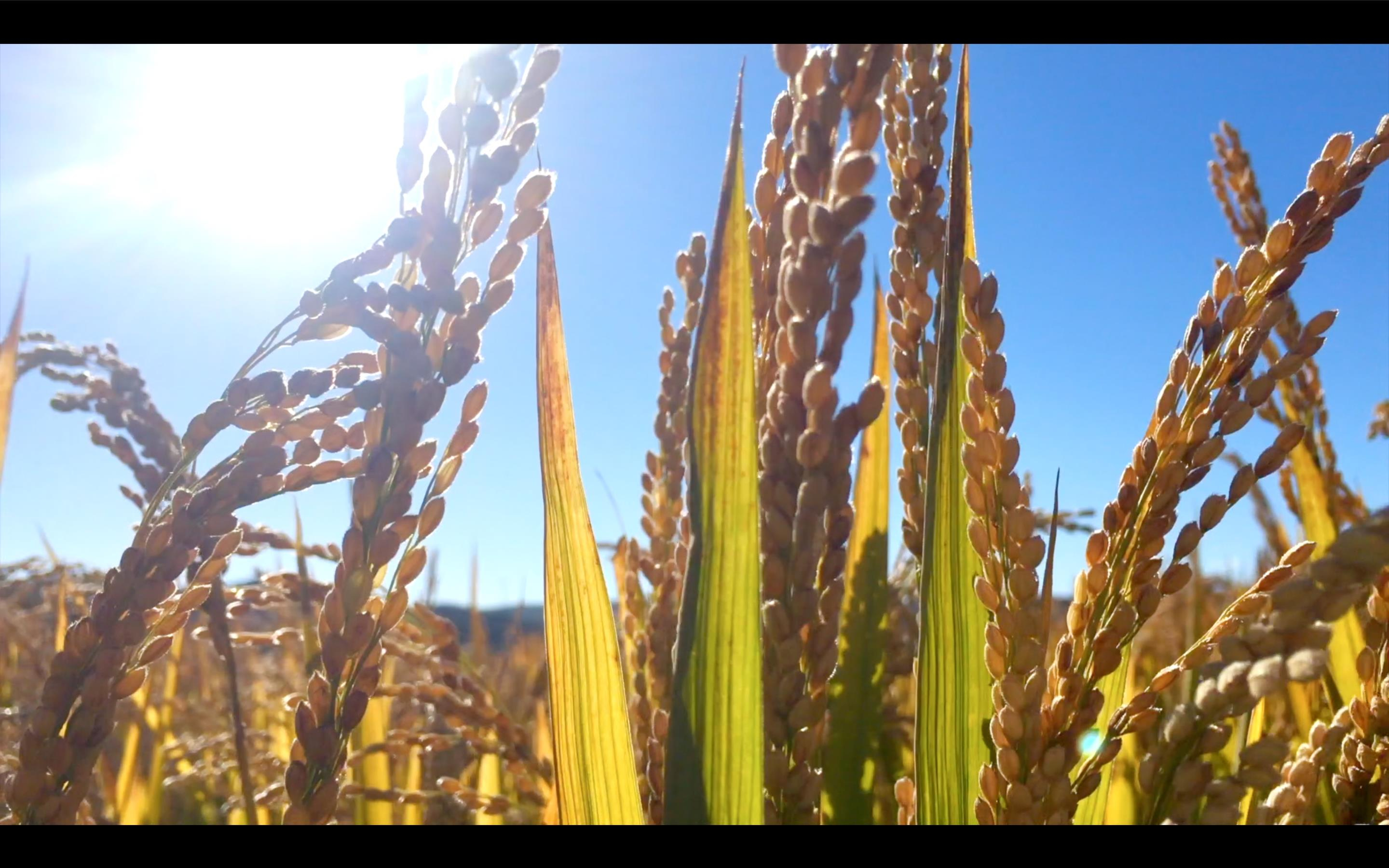
Rice stalks under the sun during harvest season. (Photo: CGTN)
On September 29, 2019, two days before the 70th anniversary of the founding of the People's Republic of China, 89-year-old Yuan Longping was awarded the Medal of the Republic, the country's highest honor, by President Xi Jinping for his extraordinary contribution to the nation's food security, the development of agricultural science, and global food supply.
"A tiny grain could either save a country or bring it down. The importance of food security should never be underestimated," said Yuan, academician of Chinese Academy of Engineering.
Innovation matters
The 2019 State of Food Security and Nutrition in the World report shows that over 820 million people are suffering from hunger and the world is facing huge challenges in achieving the sustainable development goal of zero hunger by 2030.
According to the UN's Food and Agriculture Organization, there are four dimensions to food security: physical availability of food, economic and physical access to food, food utilization, and stability of the other three dimensions over time.
Between 1979 and 2005, China received food aid from the UN World Food Program (WFP) which benefited over 30 million people nationwide. Starting from 2016, however, the partnership between China and the WFP witnessed a total transformation: China turned from a major aid recipient to a leading aid donor, supporting millions of malnourished people beyond its borders.
Innovation in science and technology is one of the driving forces behind this change. Yuan is considered a pioneer in the field of food science and technology. He has dedicated himself to the research, application and promotion of hybrid rice for decades. The super hybrid rice that his team cultivated can yield nearly 18.1 ton per hectare, setting a new world record. Hence, Yuan is regarded as the "father of hybrid rice."
"Food (safety) is of paramount importance to the national economy and people's livelihood. As an agronomist, I felt that I should focus on this area," Yuan told CGTN. "My biggest hope is to make sure that the 'rice bowl' is firmly held in our own hands so that we, as a country, can feed ourselves."
Aiming higher
In addition, Yuan is also leading the Saline-Alkali Tolerant Rice Research and Development Center in Qingdao. Saline-alkali tolerant rice, commonly known as seawater rice, is a special type of rice grown in tidal flats and desert areas.
China's planting of seawater rice began in 1986. With the continuous efforts of scientists, the cultivation of seawater rice has been successfully promoted to the national level. In addition, by planting seawater rice and adopting soil improvement technologies, the previously barren alkali soil is now largely transformed into arable land.
By adopting the latest technology, Yuan's team successfully cultivated and planted seawater rice in five different types of saline soil in China. The team also brought seawater rice to remote deserts in the Middle East. On July 22, 2018, Yuan's team experimented with planting seawater rice in desert areas in the Middle East. It is the world's first successful case of planting rice in the desert, a move that offers a solution to improving global food security.
"Deserts, in a technical sense, are an extreme case of alkaline soil. Our rice harvest totaled 901.5 kilograms, with one type hitting around 7.8 tons per hectare," Zhang Guodong, deputy director of the Saline-Alkali Tolerant Rice Research and Development Center, told CGTN.
"We aim to convert 6.7 million hectares of alkaline soil into arable field in China, so that they can produce an extra 3 million kilograms of food that can feed 100 million people," Zhang continued.
"I'm surprised, actually, and this is intelligence, in my opinion, that they bring a lot of genotypes to evaluate under this... This is a start, a good start," said Dr. Aziz Abu El-Ezz, researcher at Agricultural Research Center of Egypt.
According to the UN's Food and Agriculture Organization, there are approximately one billion hectares of alkaline land worldwide.
"If technology is promoted globally through international collaboration, it will be a significant milestone in our effort to solve the issue of global food security," professor Zhang Hongyu from Tsinghua University told CGTN. "Countries in Africa and the Middle East have vast arable land but lack adequate water supply. Many agricultural technologies cannot be applied there. If we can help them with our solutions, we will be doing our part for building a community of shared future for mankind."


